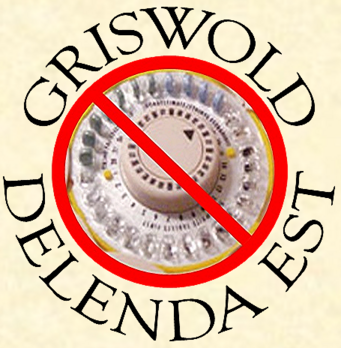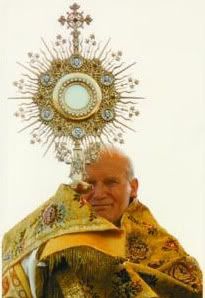Contraception, Part I
This talk is ostensibly about contraception, but there’s a good deal of ground we’ll have to cover before we get there – what I’m going to say about contraception is really a conclusion, which won’t make any sense unless we have first established the correct set of premises. To talk about contraception, you obviously have to talk first about sex. But to talk about sex, you first have to talk about man, and to talk intelligently about man, you have first to talk about God. So, let’s start with God.
What do we know about God? We know a variety of things about God, but I’d like to focus on one of His overarching and unifying qualities: God is love, Deus caritatis est. This well established principle was, of course, the topic of Benedict XVI’s first encyclical, which came out last year.
We can see how this works in practice by considering the Holy Trinity: The Father creates the universe and sustains it out of love, and His instrument in that loving act is His word, the Son, the consubstantial and eternal Logos. The Son, in turn, gives Himself entirely to the Father in love, dying on the cross as the perfect sacrifice of perfect love. The love between the Father and the Son is so great that it manifests itself as a third person, the Holy Spirit
God proceeds, as Genesis tells us, to make man in His own image – and not just in the image of the Father, but in the image of the entire Godhead: “let us make man in Our image.” And although it is primarily in our souls that we possess this image of God – which makes sense, since God is a spiritual, and not a corporeal being, the Incarnation withstanding – God creates us body AND soul.
Therefore, just as God exists fully in the self-giving act of love, so too is man made to give of himself in love, and in so doing he most fully realizes his status as being a reflection of God’s image.
Man has as his final cause God – union with God is our purpose, our end. We have been created to be united in love with something outside ourselves. We have, then, what John Paul II referred to as a “spousal nature,” by which we will most fully realize our purpose by being united with God following the resurrection.
But man can’t enjoy bodily or even spiritual union with God here on earth – this has been rendered impossible by the fall. We have a connection with God through the sacraments, but not this spousal union.
Therefore, God, in His love and wisdom, created man in such a way that he can partially fulfill his call to give of self, partially fulfill his spousal nature, within the confines of our earthly existence.
For this reason, God created man “male and female” and gave them marriage to unite them spousally, and sexuality, the bodily component of that union.
Thus, man most fully reflects God’s image when a man and a woman are united in the marital embrace – they share a union in both body and soul that mirrors the union among God’s persons: they share a spiritual bond by virtue of the sacrament of which they have partaken, and they share a physical bond by virtue of the realities of man’s physical nature. Because we are a union of body and soul – not merely a haphazard jumble of the two, and not merely animated bodies, but a real union – we could not in this life most completely reflect God’s image without the union and giving of one of these aspects. God the Father gives perfect love without corporeal existence, but this is because He transcends it while giving completely of Himself. We have bodies, and so if we attempted to give of ourselves entirely without doing so bodily, we could not – we would be withholding something that we have. Thus, both body and soul are required to be called upon in marriage, because we have both to give.
Labels: Contraception








0 Comments:
Post a Comment
<< Home